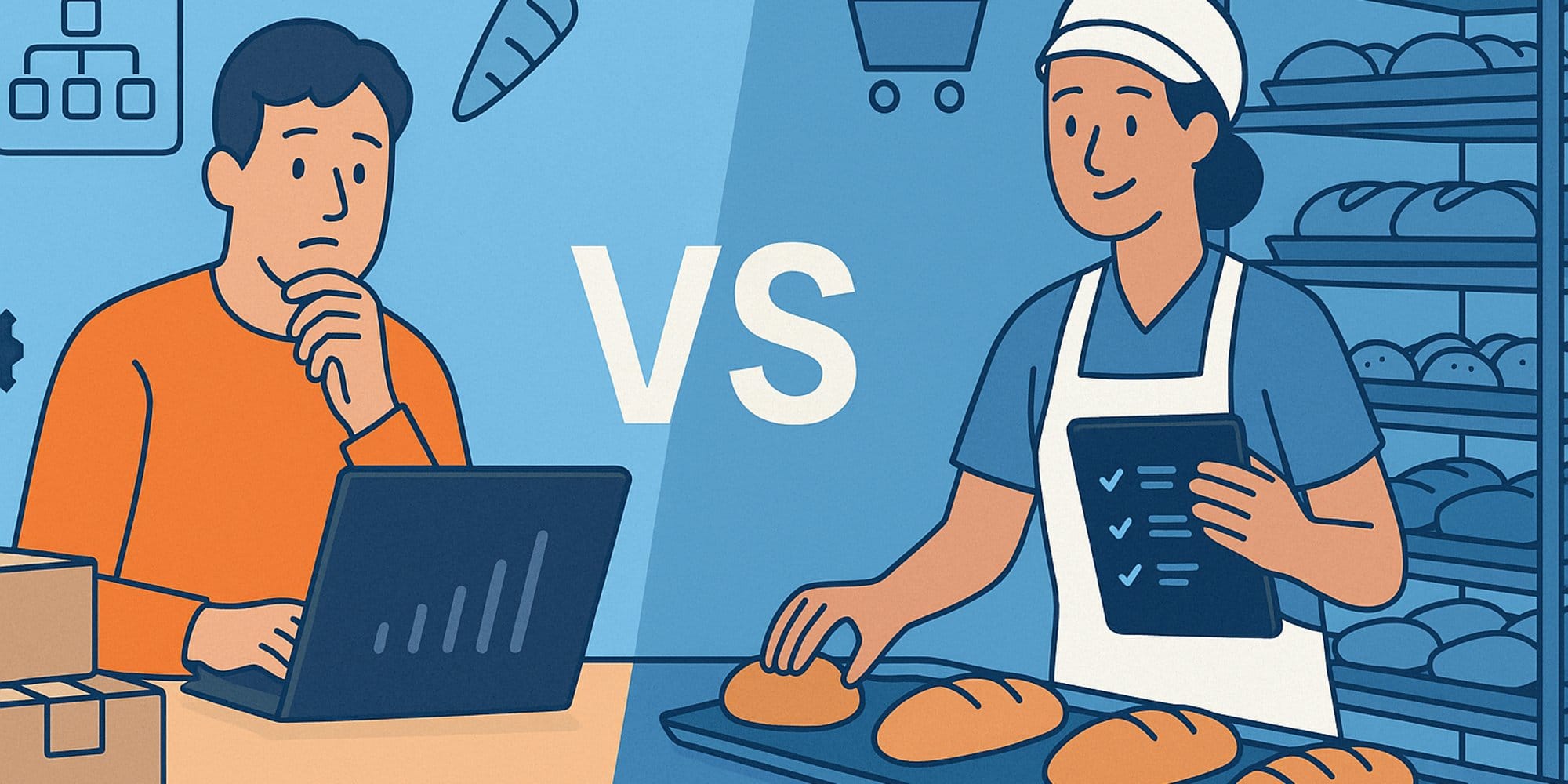Generic ERP vs Industry-Specific: Why Going Niche Pays Off for Food Businesses

When food businesses start shopping for an ERP, they often end up in the same spot — staring down a long list of big-name, generic platforms that promise to “do it all.”
But here’s the thing: what works for a furniture supplier or a parts distributor rarely works for a bakery or grocer.
Food is different. And your systems should be too.
The Problem with One-Size-Fits-All
Generic ERPs (like NetSuite, Odoo, or Fishbowl) are built to suit every industry under the sun. They try to cover everything with endless modules, integrations, and configuration options.
What that really means for you:
- Workarounds instead of workflows
- Consultants instead of clarity
- Time spent configuring, not operating
And even then, you’re likely still juggling spreadsheets for the things that matter most.
What Food Businesses Actually Need
Whether you're manufacturing, wholesaling, or retailing food, your operations are unique — and they need systems that reflect that.
🧾 Batch-level tracking and expiry management
🥣 Recipe-based production with yield variances
📦 Perishable stock control
🛒 Standing orders and direct-to-store delivery
🧼 Food safety compliance (HACCP, SQF, FSANZ)
These aren’t “nice to haves” — they’re the everyday building blocks of a food business. Generic ERPs just aren’t built for them.
Why Industry-Specific ERPs Make Sense
1. You’ll get up and running faster
No need to reinvent the wheel — the workflows you need are already built in. Faster setup, faster adoption, fewer delays.
2. You won’t need to hack the system
No more bending the rules to handle carton splits or recipe costs. Everything’s designed around how food actually works.
3. Your decisions are better, sooner
When your ERP understands prep time, delivery runs, and production waste, your reports become actionable. No guesswork — just clarity.
You Shouldn’t Have to Teach Your ERP How to Work
Running a food business is demanding enough. You shouldn’t need to teach your software how to do the basics.
Choosing an ERP built specifically for food means:
- Less training
- Less admin
- Fewer mistakes
- Better margins
That’s exactly why we built Supply’d — an ERP designed for grocers, food manufacturers, and bakeries who are ready to scale without losing control.
Want to see how it stacks up? Book a demo and we’ll show you the difference — no pressure, just real-world insight.

